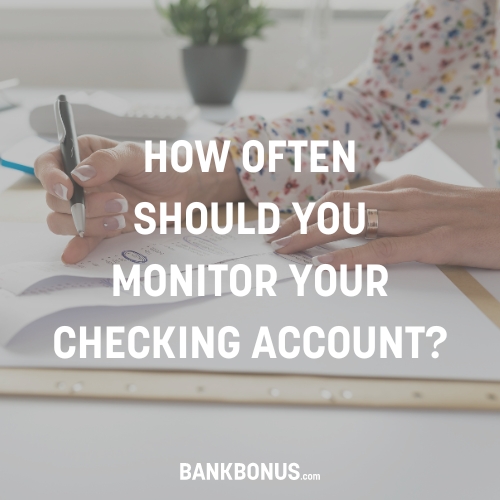Are you worried about how creditors can track down your bank accounts? It’s a common concern, especially when dealing with financial obligations and outstanding debts.
However, understanding creditors’ methods to find your accounts can help you protect your finances from aggressive debt repayment pursuits.
In this blog post, we will explore the various techniques creditors employ to locate your bank accounts.
You can take proactive steps to safeguard your assets and maintain financial privacy by gaining insight into their strategies.
How Creditors Find Your Bank Accounts
Debt collectors take certain actions to find checking and savings accounts in your name.
When creditors and lenders try to locate bank accounts, they’ll utilize:
- Public Records Searches
- Credit Bureau Reporting
- Collection Agency Database Searches
- Court Orders and Judgments
- Bank Levies
- Social Media and Online Investigations
With these resources, creditors can track down bank accounts with relative ease, so it’s important to be aware of what information creditors can access.
1. Public Records Searches
While bank accounts aren’t public record, certain assets are. A creditor may employ public records searches if the debtor has evaded previous contact attempts. This method is called skip tracing.
These searches involve examining legal documents, such as property deeds, bankruptcy filings, and court records. By analyzing these records, creditors can often discover valuable information about an individual’s assets and trace them back to certain checking accounts and their associates.
2. Credit Bureau Reporting
Creditors also rely on credit bureau reporting to find credit unions and bank accounts. Credit bureaus compile a detailed financial profile, including personal loans, credit card, and bank account information, provided by banks and lending institutions.
By accessing this information, creditors can identify the bank accounts associated with a specific individual and use it to facilitate debt collection efforts.
Bank accounts in good standing won’t impact your credit score or appear on your report, but mishandled accounts can show up.
Consult your credit report to better understand your financial liabilities.
3. Collection Agency Database Searches
Collection agencies maintain extensive databases containing relevant debtor information. By searching these databases, creditors can locate bank accounts tied to the debtor’s personal information.
Collection agencies typically collect this information through various channels, including previous debt collection attempts and public records.
4. Court Orders and Judgments
Sometimes a creditor obtains a court order or judgment against a debtor, they can use this legal authority to locate bank accounts. By presenting the court order to financial institutions, creditors can compel them to disclose information about the debtor’s bank accounts.
This method is typically employed as a last resort after other attempts have been unsuccessful.
5. Bank Levies
Another method creditors use is bank levies. A bank levy allows a creditor to freeze funds in a debtor’s bank account, preventing the debtor from accessing or withdrawing their money.
By initiating a bank levy, creditors can identify the bank that holds the account and seize the funds to satisfy the outstanding debt.
6. Social Media and Online Investigations
In the digital age, creditors use social media and online investigations to locate assets that may not show up on a legal search. They analyze debtors’ public profiles and online activities to gather information about their financial transactions and banking affiliations.
By leveraging the information shared online, creditors can uncover crucial details about a debtor’s bank accounts, assets, and expenditures.
How Much Can Creditors Take from Your Accounts?
Creditors have certain rights when collecting outstanding debt, but there are also legal limits in place to protect consumers.
The two main types of creditors that can access your bank accounts are judgment and government.
Judgment Creditors
When a creditor obtains a judgment against you through a court process, they may be entitled to access your bank accounts.
However, legal protections prevent them from taking the entirety of your funds.
- Legal Exemptions: Certain funds may be exempt from creditors’ reach depending on your state’s laws. These exemptions typically cover necessities like a portion of your wages, public assistance, and retirement benefits. It’s important to research and understand your state’s specific exemptions. As of 2023, Texas, South Carolina, Pennsylvania, and North Carolina have protections against wage garnishment.
- Capped Amounts: In some cases, even non-exempt funds in your bank accounts are protected up to a certain amount. This amount varies by state and may be based on the average monthly income or a fixed dollar amount.
Learn more about your state’s laws
Government Creditors
Government creditors include entities like the Internal Revenue Service (IRS) and state tax authorities.
If you owe outstanding taxes, these entities can access your bank accounts to collect the owed amounts.
- Notice Requirements: Before seizing funds from your accounts, government creditors are generally required to send you notices and provide an opportunity to resolve the debt using payment plans or negotiations.
- Exemptions and Negotiations: Similar to judgment creditors, exemptions are often in place to protect certain funds from government creditors. Additionally, it’s worth exploring options such as negotiating payment plans or settling the debt with government entities.
Funds Creditors Can Not Access
It’s important to understand that not all types of funds are fair game. Certain funds are generally protected from creditor collection efforts.
Let’s explore these different types of funds and why they may be off-limits to creditors.
1. Social Security Benefits
Creditors typically cannot access Social Security benefits. Social Security payments are designed to provide financial support to retired or disabled individuals and are generally exempt from creditor collection.
This protection ensures that individuals can rely on their Social Security income to cover their basic needs without fear of seizure by creditors.
2. Veterans Benefits
Like Social Security benefits, veterans’ benefits are also protected from creditors. These federal benefits are intended to assist and support veterans in various aspects of their lives, such as healthcare, education, and housing.
To ensure the financial well-being of veterans, these funds are generally considered off-limits to creditors.
3. Child Support Payments
Child support payments are typically not accessible to creditors either. These payments are meant to provide financial support to custodial parents for the upbringing and welfare of their children.
The law recognizes the importance of ensuring that children receive the financial support they need, and therefore, these funds are usually exempt from creditor collection efforts.
4. SSI (Supplemental Security Income)
SSI, or Supplemental Security Income, is a need-based program designed to assist disabled individuals with limited resources. Similar to Social Security benefits, SSI payments are generally protected from creditors. This protection ensures that individuals relying on SSI to meet their basic needs aren’t vulnerable to aggressive creditor actions.
5. Retirement Accounts
Retirement accounts, such as 401(k)s and IRAs, are typically shielded from creditor collection efforts. Annuities designed to supplement retirement accounts are also protected.
These funds are designated for individuals’ retirement and are subject to certain tax advantages. The law recognizes the importance of helping individuals save for their future and ensures creditors cannot easily access these funds.
6. Public Assistance Programs
Funds from public assistance programs, such as welfare benefits or unemployment compensation, are often exempt from creditor collection. These programs financially support individuals and families facing economic hardship. Protecting these funds from creditors ensures people have a safety net during challenging times.
It's worth noting that while these types of funds are generally protected from creditors, there may be exceptions or variations in different jurisdictions. It's always important to consult with a legal professional to fully understand your area’s specific rules and regulations. Understanding what types of funds creditors cannot access can give you peace of mind when dealing with financial difficulties. Knowing that certain funds are safeguarded can help you maintain financial security and stability during challenging times.
Learn more about funds creditors can not touch
How to Protect Your Account from Creditors
In today’s unpredictable financial world, taking proactive steps to safeguard your hard-earned money is vital. Creditors may attempt to locate and access your bank accounts.
By implementing key strategies, you can protect your account from creditors and maintain financial security.
Let’s explore some effective methods below.
1. Maintain Separate Bank Accounts
One way to shield your funds from potential creditors is by keeping your personal and business finances separate. Opening separate bank accounts for your personal and business transactions can provide an added layer of protection.
Doing so reduces the risk of creditors targeting your personal checking and savings accounts in the event of business-related financial issues.
You can also open a limited liability corporation (LLC) to further differentiate your business liabilities from your personal liabilities.
2. Regularly Monitor Your Accounts
Monitoring your bank accounts is crucial to detect any unauthorized activity promptly. Keep a keen eye on incoming and outgoing transactions, ensuring they align with your financial records.
By staying vigilant, you can quickly identify any potential fraudulent or suspicious behavior and take immediate action to mitigate any risks.
3. Be Mindful of Information Sharing
Avoid sharing your account information with unnecessary parties or unknown individuals. Limit the number of people with access to your account details, including account numbers, passwords, and PINs.
Additionally, be cautious when providing personal information online, especially on unsecured websites or suspicious platforms, as it can increase the risk of unauthorized access to your accounts.
It’s also a good idea to minimize sharing on social media.
4. Utilize Strong Security Measures
Strengthen the security of your bank accounts by employing robust measures such as strong and unique passwords, two-factor authentication, and biometric verification, if available.
Regularly update your passwords and avoid using easily guessable information like birthdays or sequential numbers. These security measures can act as a powerful deterrent against unauthorized access attempts.
5. Stay Informed about Legal Rights and Protections
Educate yourself on the legal rights and protections available to you in your jurisdiction. Familiarize yourself with the laws surrounding debt collection practices, wage garnishment, and other relevant regulations.
Understanding your rights can empower you to take appropriate action if creditors attempt to access your accounts unlawfully.
6. Seek Professional Advice
If you face mounting debt or potential creditor issues, consider seeking professional advice from a lawyer or financial expert.
They can provide guidance tailored to your situation and help you navigate legal processes, negotiate with creditors, and explore debt relief options. Their expertise can prove invaluable in protecting your account and achieving financial peace of mind.
Implementing these strategies can significantly enhance the security of your bank accounts and mitigate the risks associated with creditors seeking access to your funds.
By maintaining separate accounts, monitoring transactions, being cautious with information sharing, utilizing strong security measures, staying informed about legal rights, and seeking professional guidance, you can fortify your financial foundation and safeguard your hard-earned money.
Learn More:
Steps to Take If a Debt Collector Sues You
When facing a lawsuit from a debt collector, you have several options to consider:
1. Validate the Debt
You have the right to request debt validation from the collector by asking them to provide evidence that the debt is legitimate and they have the legal right to collect it. The Fair Debt Collection Practices Act (FDCPA) grants you this right and the Federal Trade Commission (FTC) enforces it.
2. Negotiate a Settlement
If the debt is valid and you can’t dispute it, you may choose to negotiate a settlement with the debt collector. Settlements require both parties to agree on a reduced amount or a payment plan that fits your financial situation.
3. File an Answer
Filing an answer to the lawsuit is another option. An answer is a formal response that addresses the claims made against you. A well-crafted answer can help you challenge the debt collector’s case, potentially leading to a dismissal or favorable outcome.
4. Protect Your Rights
Throughout the lawsuit process, you’ll need to protect your rights to avoid being taken advantage of. Consider the following steps:
- Keep Records: Maintain a detailed record of all communications and transactions related to the lawsuit, including correspondence, phone calls, and any debt payments These records can serve as crucial evidence if any issues arise.
- Monitor Statute of Limitations: Debt collectors have a limited time frame, known as the statute of limitations, to sue you for an unpaid debt. Research and understand the statute of limitations specific to your state, as it can vary. You may have a strong defense if the debt is beyond the statute of limitations.
- Attend Court Hearings: If the lawsuit proceeds to court, show up to every hearing. Failure to appear can result in a default judgment against you. Prepare yourself by reviewing all relevant documents beforehand and, if necessary, seek representation from an attorney.
5. File Bankruptcy
If all else fails, filing bankruptcy can alleviate the garnishment of bank accounts and give you a fresh slate for your unpaid debts. However, not all debts can be resolved if you file for bankruptcy.
Student loans, alimony, taxes, and child support debt won’t be discharged if you file bankruptcy, so you’ll need to be mindful of the kinds of debt you have before pursuing this option.
Frequently Asked Questions
What is a judgment creditor?
A judgment creditor is a person or entity that has obtained a court judgment against another party. In this case, the court determined that the debtor owes the creditor a certain amount of money.
Once a judgment is obtained, the creditor can take legal action to collect the debt by garnishing wages, seizing assets, or placing liens on property. A judgment creditor has been granted the legal right to collect a debt owed to them through a court judgment.
What type of bank account cannot be garnished?
Certain types of bank accounts cannot be garnished. These include retirement accounts, such as 401(k)s and IRAs, and Social Security and disability benefits. Annuities are also protected as long as you can prove their origin, even if they’re in a non-protected account.
Trust account funds are also protected from garnishment of bank accounts.
It’s important to note that these protections can vary depending on state laws, so it is recommended to consult with a legal professional for specific advice.
Can debt collectors access your bank statements?
Creditors can access your bank statements, but they’ll need permission They can do this by obtaining a court order or your written consent. Once they can access your bank statements, they can review your financial transactions and bank account balances.
This information is important to them because it helps them assess your financial situation and determine if you can repay any debts owed to them. It is essential to be aware of this fact and understand that creditors have legal means to access this information.
Conclusion
Creditors have several methods to find your bank accounts to collect outstanding debts. These methods include accessing public records, skip-tracing techniques, and obtaining court judgments.
Additionally, creditors may also employ specialized agencies with access to extensive databases and search tools. It is important to be aware of these methods and take necessary actions to protect your personal financial information.
Safeguarding your financial information and maintaining a healthy credit history is crucial in ensuring your financial well-being.





Comments are closed.
Comments are closed here.